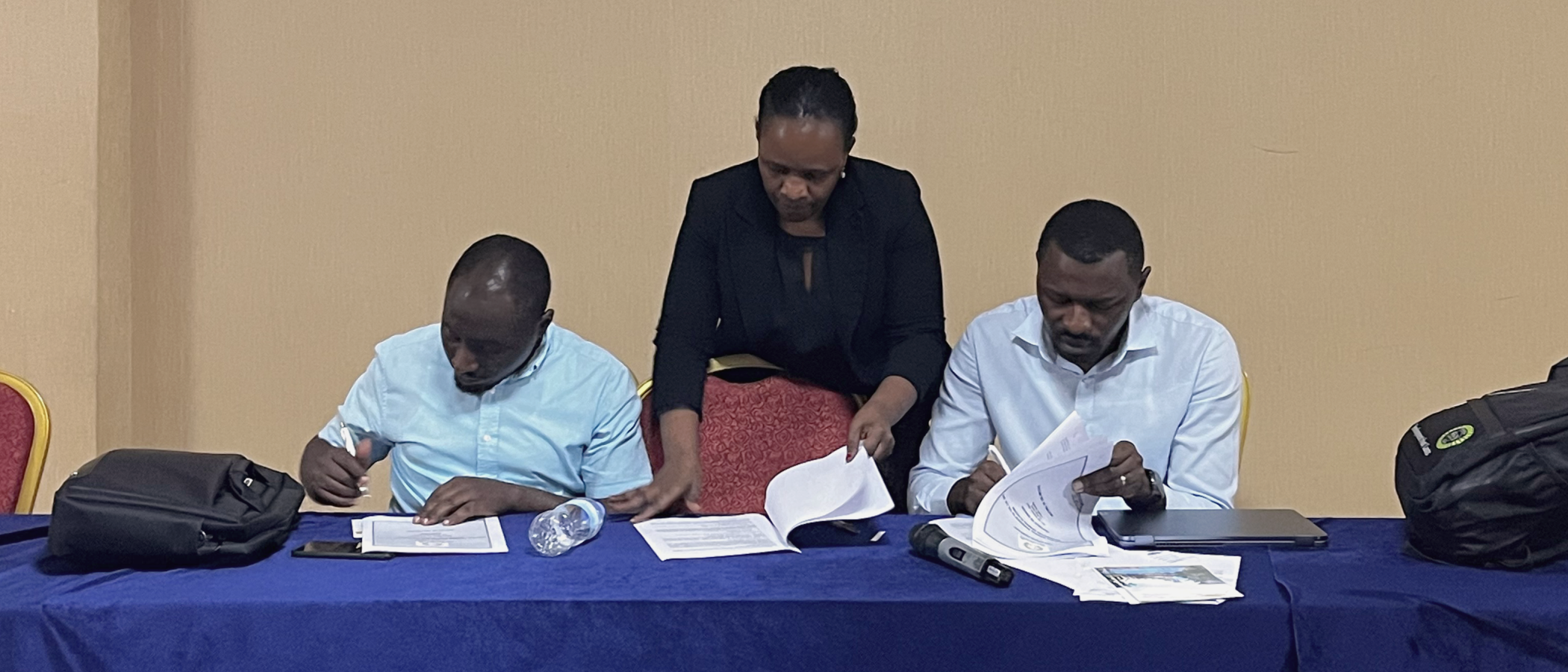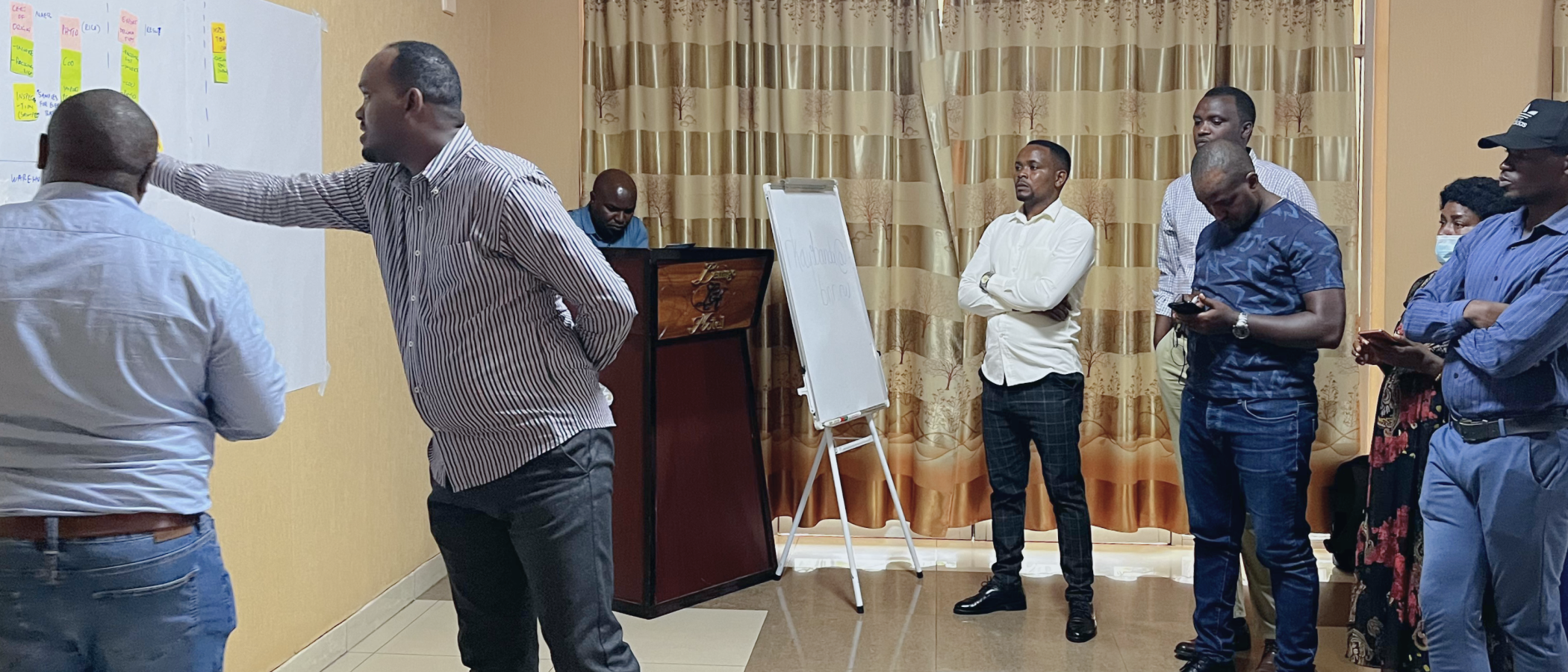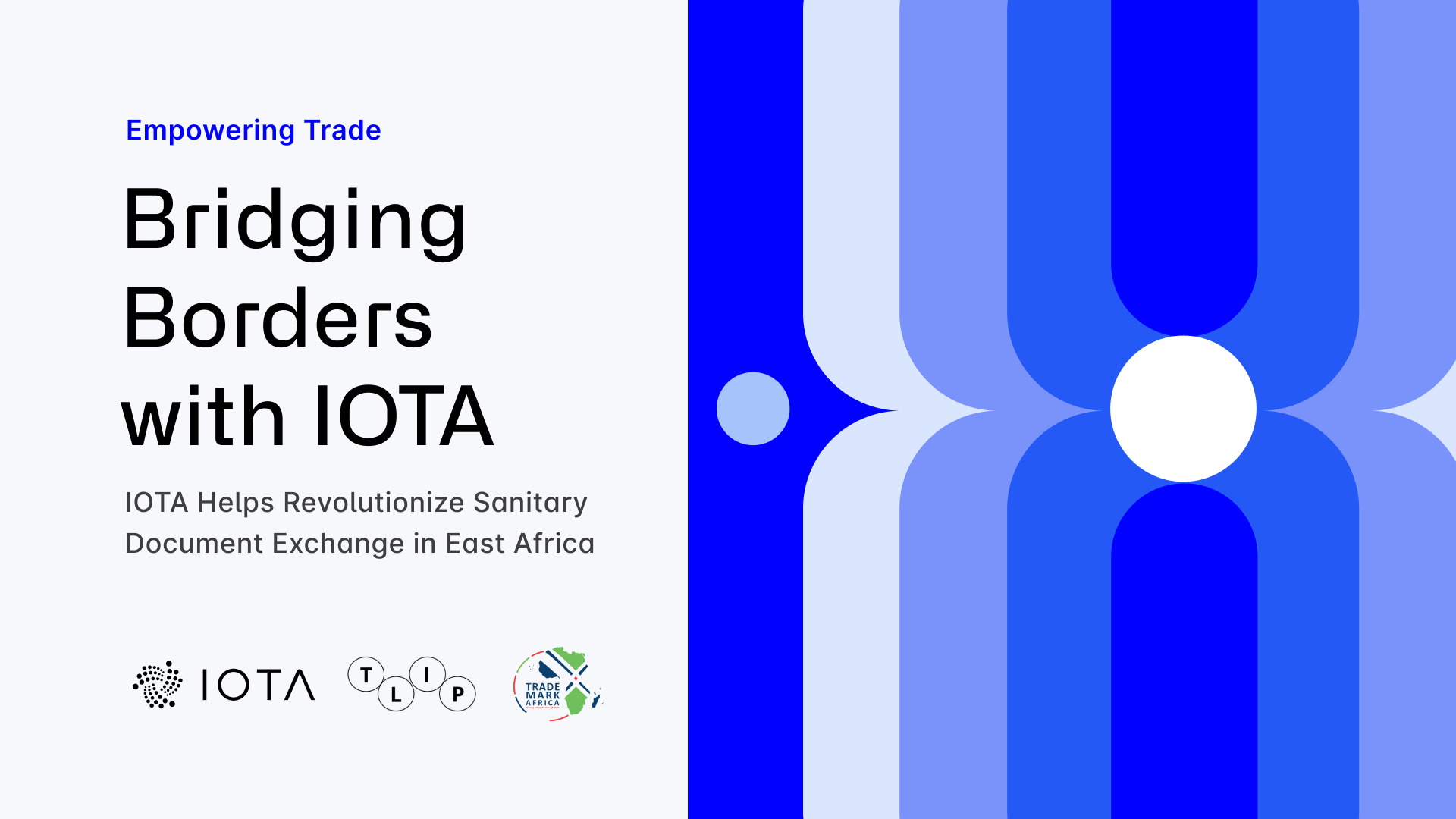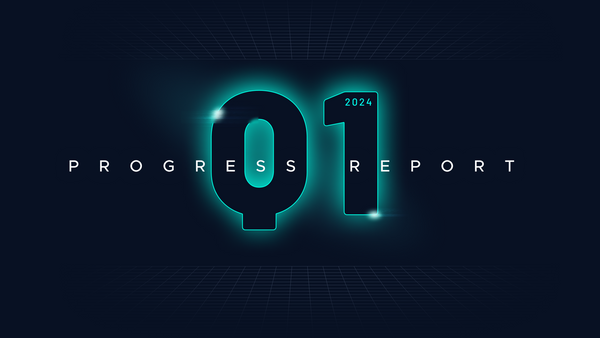Empowering Trade: Bridging Borders with IOTA
IOTA Helps Revolutionize Sanitary Document Exchange in East Africa
TL;DR:
Trademark Africa and Sanitary and Phytosanitary (SPS) regulatory agencies in the East African Community are collaborating on an initiative that uses IOTA to enhance the exchange of Sanitary and Phytosanitary (SPS) trade documents across borders. The Trade Logistics Information Pipeline (TLIP) facilitates data exchange, promoting transparency and compliance in SPS measures. A recent workshop in Rwanda outlined plans for a digital platform tailored for SPS certificates, addressing regulatory challenges and promoting a more efficient, secure, and interconnected East African trading community. The initiative sets the stage for a digitalized future in regional trade.
Our partner Trademark Africa has recently joined forces with Sanitary and Phytosanitary regulatory agencies in the East African Community (EAC) for a groundbreaking initiative to improve the exchange of food safety and plant health-related documentation in international trade.
The collaboration between the EAC’s Sanitary and Phytosanitary regulatory agencies and Trademark Africa aims to establish a robust information-sharing platform, leveraging IOTA technology to facilitate seamless exchange of Sanitary and Phytosanitary (SPS) trade documents across EAC borders.
The Importance of SPS
An efficient and secure data exchange is crucial for international trade, particularly in the realm of Sanitary and Phytosanitary (SPS) measures. SPS measures are vital for food safety and preventing the spread of plant pests and animal diseases. In SPS-related data exchange, real-time information and trustworthiness of information is paramount to ensure the safety of agricultural and food products like livestock and cereals. However, challenges such as different regulatory frameworks, disparate information systems, and the need for timely information and communication pose hurdles.
SPS Data Exchange Facilitated by TLIP
The SPS initiative between Trademark Africa and the SPS regulatory agencies in the EAC plans to use the Trade Logistics Information Pipeline (TLIP), a digital infrastructure initiated as a collaboration between Trademark Africa and IOTA, to exchange trade-related data for SPS standards and regulations. The SPS information-sharing platform will leverage IOTA’s distributed ledger technology to create digital identities to manage access to SPS data and entities. Ultimately, it will help ensure a unified and standardized approach to food safety and plant health across EAC borders.
Setting Plans in Motion: SPS Workshops in Rwanda
A pivotal moment in this collaboration was the Business Process Mapping Workshop held in Rwanda from 24th to 26th October 2023. The workshop brought together key stakeholders, including representatives from various ministries and institutions, such as the Ministry of Foreign Affairs and International Cooperation, Rwanda Inspectorate Competition and Consumer Protection Authority (RICA), the National Agriculture Export Development Board (NAEB), and several industry associations.

The main objective of the workshop was to chart the course for the design and development of a digital information-sharing platform tailored specifically for SPS certificates between EAC countries. The participants delved into the existing processes for sharing SPS certificates, identified the primary stakeholders involved, and outlined the necessary features and functionalities required for a seamless digital platform.
Commitment to Revolutionizing SPS Processes
One of the workshop's highlights was the discussion on how the SPS platform would not only streamline trade processes but also address challenges such as diverse regulatory standards, emerging disease threats, capacity and infrastructure constraints, among others related to meeting standards, technical regulations, and SPS measures in key export markets. Stakeholders had the opportunity to understand the intricacies of the platform and discuss its potential benefits for the export process.
Representatives from the IOTA Foundation, Trademark Africa, and the EAC Secretariat also contributed their expertise to the workshop. The collaboration signals a commitment to restructuring and automating trade processes at the EAC national level, with a focus on issuing various trade documents, including phytosanitary certificates and import permits.

As the workshop concluded, the stakeholders proposed optimized future processes utilizing TLIP. The proposals include upgrading national systems to facilitate seamless integration with the SPS system, incorporating traders into the SPS platform, and expanding the range of notifications and alerts to encompass perishable goods. The collaborative effort sets the stage for a more efficient, secure, and streamlined approach to SPS document exchange, laying the foundation for a stronger and more interconnected East African trading community.
Charting the Course for the Future
With a roadmap now in place, the journey towards a digitalized and secure SPS information-sharing platform in a safe and efficient East African trade landscape has officially begun.
This initiative promises to not only boost regional trade but also foster a more collaborative and digitally advanced trade ecosystem within the EAC. The integration of TLIP with SPS measures is an important completion of the trade data made available through the TLIP infrastructure. TLIP's role as a trusted infrastructure for logistics information enhances the harmonization of SPS measures, fostering transparency and unity in addressing food safety and plant health concerns across borders. As the platform gains traction, East Africa is poised to set an example of how a united, data-driven, and technologically innovative approach can redefine the future of regional trade.
The next steps involve incorporating recommendations, engaging additional stakeholders, and designing a pilot that integrates seamlessly with existing systems while prioritizing security and efficiency.
Stay Tuned for Updates
We encourage stakeholders, industry players, and the public to look out for updates and announcements from the IOTA Foundation, Trademark Africa, and the EAC for insights into the collaboration’s impact on cross-border trade.
To learn more about IOTA’s role in TLIP, check out the TLIP website, and follow their new LinkedIn page, where you can contact the team with any questions.
Links in this article
- Website of our partner Trademark Africa
- Website of the Ministry of Foreign Affairs and International Cooperation of Rwanda
- Website of the Rwanda Inspectorate Competition and Consumer Protection Authority
- Website of the National Agriculture Export Development Board of Rwanda
- IOTA blog post on IOTA-Trademark Africa partnership




